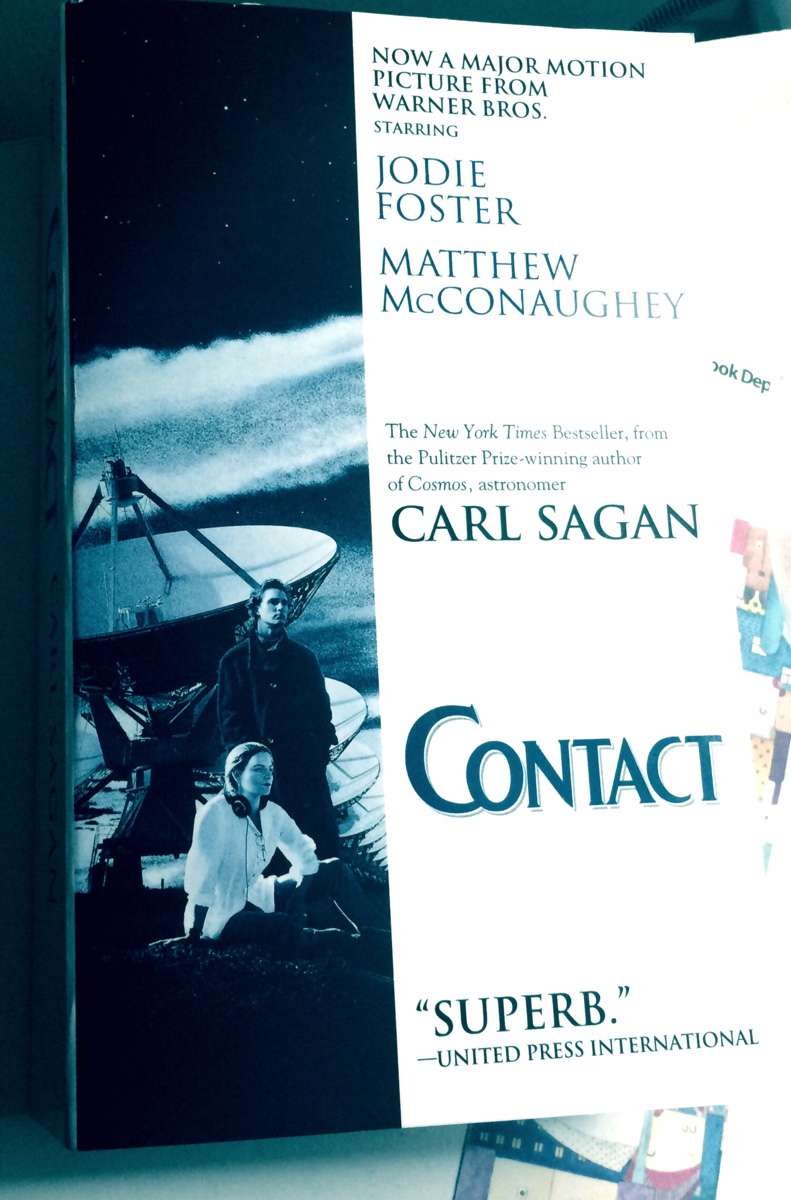"There were those who considered listening to the signal an abomination and who urged the observatories to stop; there were those who considered it a Token of Advent and urged the construction of still larger radio telescopes, some of them in space."
You may have seen the movie, but don't let that cheat you out of experiencing the book. Published in 1985, it is quite sad that the trials and tribulations of working against the glass ceiling that Ellie encounters are still alive and well today. As a girl who has always looked up to the stars and wondered what might be out there, it is a novel that resonates.
This is also about the eternal conflict that exists between daughters and their fathers. Unassailable supermen as we view them in infancy and something decidedly more human as we uncover in our maturity.
As a child, Ellie grows up as some kind of science wunderkind and is traumatised by the early death of her father and the impact of his rather underwhelming replacement Step father. Buoyed by her love of maths and science she uncovers a message from outer space that could both unite or divide the world she lives in.
The message contains the blue print for a machine which is will bring about a new kind of cold war competition between the Americans and Soviets to capitalise on the potential of new technology. As you might expect from the announcement that life exists beyond our realm and is making contact, religious extremists cause havoc and the central drama centres on whether anything will ever come of the message.
Love, loss and discovery of both the scientific and personal variety pepper the ensuing pages and bring a delightful humanity to the cerebral. This is a book as much about feelings and what it means to be human, as it is about our potential place in the galaxy.
5 out of 5 times they say it is a wise child that knows its own father.

I did not know he wrote books outside astronomy. Does it pass the test of time well?
ReplyDeleteI think it does :)
Delete